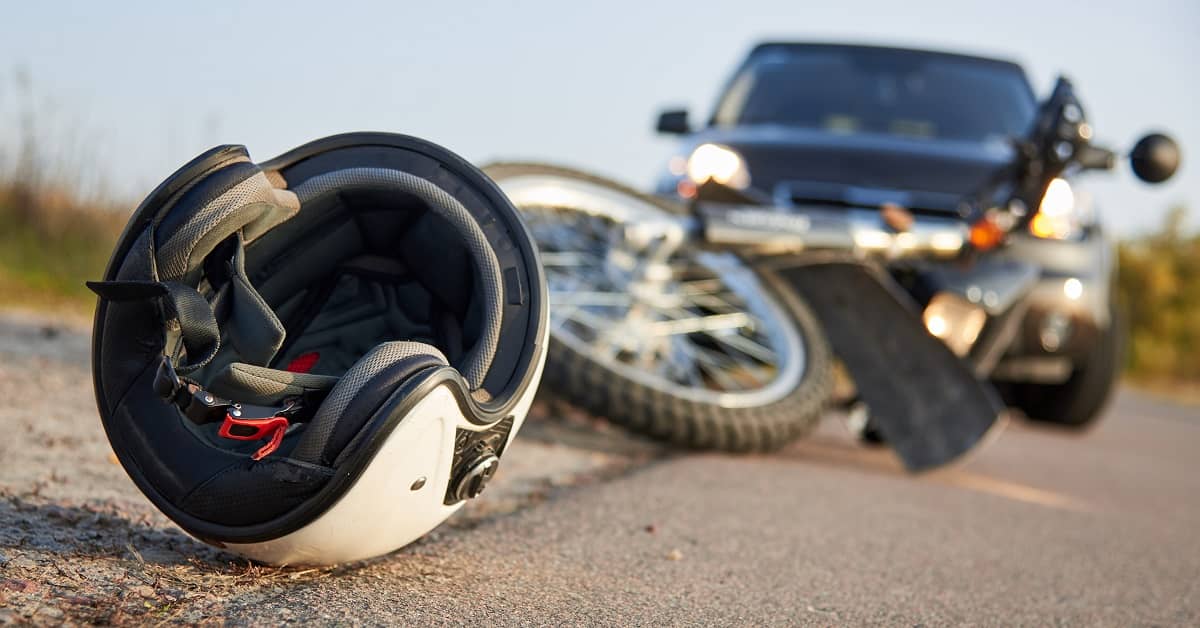
As an experienced motorcycle accident attorney knows, motorcycle accidents can happen in the blink of an eye. Before you know what happened, you can find yourself lying on the ground, disoriented and confused.
When the realization of what took place sets in, it can be hard to know how to respond. You might have the urge to “shake it off,” or, if your injuries are serious enough, you might not be able to move. It can be a terrifying, traumatic experience.
Nevertheless, while accidents and injuries vary significantly in severity, there are some specific steps you should try to take when you or a loved one is injured in a motorcycle accident. Following these steps is not only important for your health and well-being—they are also important for your potential legal claim.
Here, we’re going to take a closer look at what you should do after a motorcycle accident. If you believe the accident was caused by the negligence of another, call Patrick Daniel Law at (713) 999-6666 for a FREE consultation. A motorcycle accident attorney can help guide you through the legal ins and outs of pursuing just compensation for your injuries.
After an accident, the adrenaline and disorientation can make it difficult to truly understand the severity of your injuries. You should closely examine your body to check for visible issues such as bleeding, broken bones, etc.
Some injuries may not be visible, and they can lead to serious complications if they are not treated. In other words—you shouldn’t assume you are fine just because you don’t notice any apparent signs of trauma.
If an accident results in any injuries, you must call 911. The other driver may try to convince you not to, offering to cover your damages out-of-pocket. However, for the sake of your health and your potential claim, you should never accept.
Regardless of your financial situation or whether or not you have insurance, you should always get the medical attention you need after an accident. Again, this is not only the best thing to do for your health, but it also establishes a record of your injuries and a diagnosis that can help strengthen your claim. If you fail to seek medical attention right away, the driver’s insurance company may argue that your injuries are less severe than you assert.
Some injuries—such as a traumatic brain injury (TBI)—may not seem serious at first, but become worse after the passing of a few days. If you wait to seek medical care, you may be at risk for a wide range of complications. You might also face greater difficulty pursuing fair compensation for your injuries.
You need to make sure you can identify the driver and are able to file a claim with their insurance company after the accident. To do this, you will need to obtain the driver’s:
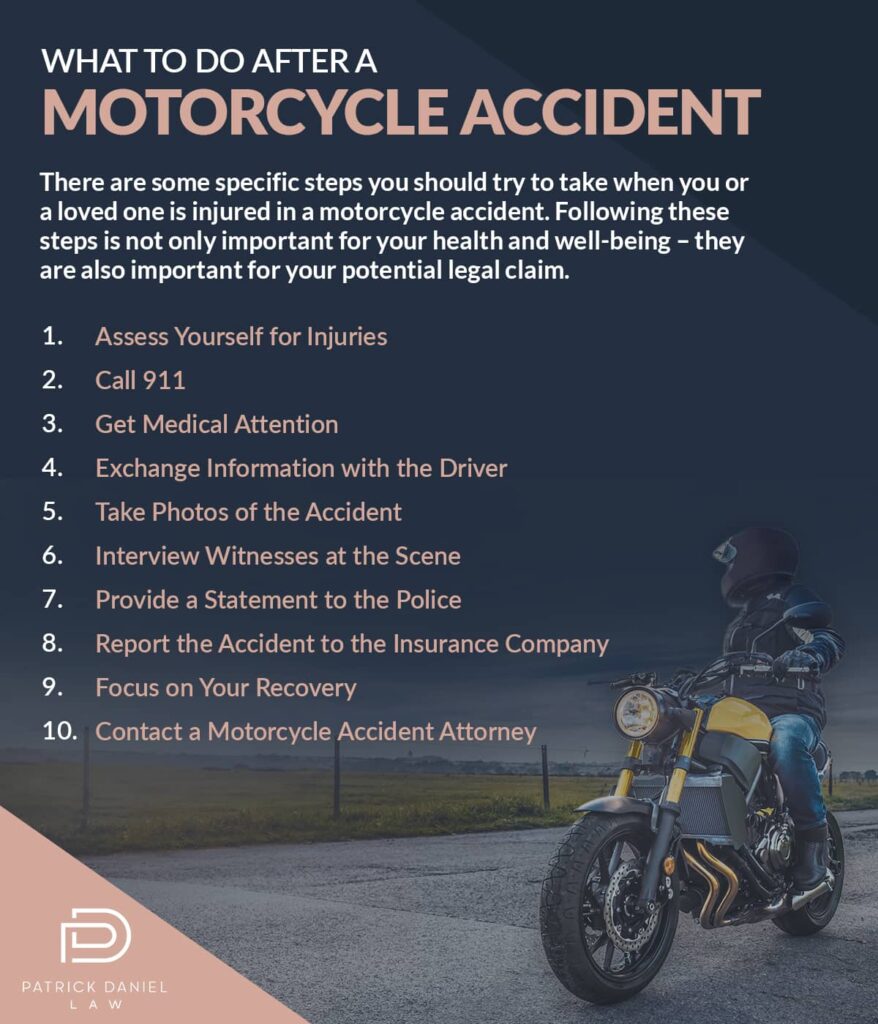
Accident scenes need to be cleaned up quickly, but having photos and video of the scene can be extremely helpful for showing the severity of the accident. It may also help explain how the accident took place, pointing to the negligence that caused it.
If you can, take photos of the scene with your phone. Make sure to get pictures of your motorcycle, the other vehicle, and any damage done to signs or other structures along the road.
Beyond photographic evidence, obtaining statements from witnesses can also help support your claim that the other driver’s negligence caused the accident. Obtain the contact information for each witness you speak to, as your attorney may need to follow up with them later.
In Texas, Transportation Code § 550.026 requires that should you be involved in an accident that results in the injury or death of another person or “damage to a vehicle to the extent that it cannot be normally and safely driven,” you report it immediately to the local police or sheriff’s department, depending on the location of the accident. Whether at the scene or when you are at the hospital, a police officer will ask you for a statement concerning the accident. Stay calm and answer the officer’s questions factually.
Never apologize or admit any degree of fault for the accident. It often takes an objective eye and an investigation to truly understand what happened. If you take any or all the blame for the accident, it may be difficult to recover compensation.
No matter who is at fault, you are required to notify your insurance carrier of the accident as soon as possible. Check your insurance policy to ensure you are within the deadline to report.
Reporting an accident is not the same thing as filing a claim. You may choose to file a claim with your own insurance company for coverage of certain losses (especially if the driver doesn’t have insurance), but it is important not to lose sight of your option to file a claim with the at-fault driver’s insurer.
Motorcycle accidents can lead to serious injuries that require extensive treatment and recovery. You need to be able to focus on getting better, which is part of why receiving legal support for your claim can be so valuable.
Accident claims are often complex. Beyond gathering evidence, interviewing witnesses, and investigating the accident, you also need to negotiate with highly-trained insurance adjusters and lawyers who will try to make it difficult to recover the compensation you need and deserve.
If they refuse to offer a fair settlement, you may need to take your claim to court to argue your case in front of a judge and/or jury. For these reasons, it is in your best interest to contact a motorcycle accident attorney as soon as possible after a crash.
We’ve been talking all about what to do after a motorcycle accident, but please, take one bit of advice from a seasoned motorcycle accident attorney—what you do before a motorcycle accident matters even more. Wear a helmet.
Texas Transportation Code § 661.003(1)(c) states that a person is NOT required to wear a helmet if they are at least 21 years old and have “completed a motorcycle operator training and safety course” or have a suitable health insurance plan that covers “injuries incurred as a result of an accident while operating or riding on a motorcycle.” Even though you may avoid a citation, you may not prevent the heightened risk of death or brain injury.
In 2021, Texas ranked third in the nation for the most motorcycle crash deaths, with 523 fatalities. That accounts for 12% of the total motor vehicle crash deaths in Texas, even though motorcycle registrations only made up 1.5% of the motor vehicle registrations that year.
When you are in a motorcycle crash, you don’t have airbags or the structure of the car or truck to protect you. Your body takes the full impact of the collision. According to data compiled by the Cochrane Library, wearing a helmet is estimated to provide a 42% reduction in the risk of death from a motorcycle accident and a 69% reduction in the risk of head injury.
If you enjoy riding your motorcycle along the open roads of Texas, wear your helmet. It may save your life. And if you find yourself involved in a crash, call a motorcycle accident attorney for help navigating your claim.
After a motorcycle accident, there are several actions you should AVOID to protect your health and potential legal claim:
Unless immediate medical attention is needed, do not leave the accident scene before authorities arrive. This could lead to hit-and-run charges.
Don’t ignore getting checked by medical professionals, even if you feel fine initially. Your health is your priority. Some injuries may not be immediately apparent and could worsen without treatment.
Don’t claim you’re unhurt immediately after the accident. Symptoms may not appear until later, and this statement could be used against you during a claim.
Avoid admitting fault at the scene, even if you believe you’re responsible. Insurance companies will jump on anything that absolves them of financial responsibility. Liability can be complex and is determined by various factors, not just initial perceptions. Allow an experienced motorcycle accident attorney to evaluate your case and establish who is at fault.
Avoid speculating or guessing about the accident’s details. Stick to facts when speaking to law enforcement or insurance representatives.
Collect as much evidence as possible from the scene, including photographs, witness information, etc. But don’t interfere with police investigations.
Keep any damaged clothing or equipment. They may serve as critical evidence demonstrating the impact of the accident.
Consult a motorcycle accident attorney before speaking to insurance adjusters. They can guide you to avoid statements that might reduce your claim’s value.
Don’t agree to any insurance settlements without consulting a lawyer. Early offers might not fully compensate for your damages.
Public discussions, especially about your health or details of the accident, can undermine your claim.
Remember, having a motorcycle accident lawyer guide you can help you to avoid pitfalls that could damage your claim.
In the aftermath of an accident, your first instinct may be to apologize, even if it’s just an expression of empathy rather than an admission of fault. However, as guided by an experienced motorcycle accident attorney, you should refrain from apologizing for several reasons:
An apology can be misconstrued as an admission of guilt, even if that was not your intention. It could be used against you in legal proceedings to establish liability.
The complexities of an accident may not be fully clear at the scene. Factors like the other party’s actions, mechanical failures, or road conditions can contribute to an accident.
Insurance companies can use your apology as a reason to deny your claim or reduce your compensation.
Your words can have legal implications. It’s best to limit your discussions of the accident to factual statements to police, medical personnel, and your motorcycle accident attorney.
Remember, protecting your rights after an accident is essential, and a lawyer can guide you in handling conversations post-accident.
Motorcycle accidents often result in severe injuries due to the rider’s exposure and minimal protection. Here are some common injuries:
It’s critical to consult a motorcycle accident attorney following such injuries to ensure you are seeking appropriate compensation for your medical expenses and suffering.
After a motorcycle accident, awareness of the various physical outcomes is crucial. Immediately after the crash, your body’s response may be an adrenaline rush, which can mask the pain of injuries. Once this subsides, the extent of physical trauma like fractures, road rash, contusions, or internal injuries can become evident.
Severe accidents may lead to critical injuries like TBIs, spinal cord damage, or loss of limbs, each with long-term physical implications. Less visible injuries like whiplash or concussion may not be noticeable instantly but can manifest later as headaches, dizziness, or memory problems.
Regardless of the perceived severity, always seek immediate medical attention after a motorcycle accident. This is vital for your health and ensures these injuries are documented, which is essential for any subsequent legal claims.
If you’re facing medical bills, long-term care costs, and other expenses after a motorcycle accident in Texas, you’ll want to do whatever it takes to receive just compensation. The first step is to consult a motorcycle accident attorney and evaluate your claim.
According to Texas Civil Practices & Remedies Code § 16.003(a), there is a 2-year statute of limitations on personal injury claims. Though that may seem like plenty of time, there are two main reasons to act swiftly. First, it takes time to assemble a solid claim for compensation. Second, fresh evidence and recent recollection will strengthen your claim.
If you attempt to pursue compensation later than the allotted 2 years, your case could be denied. When trying to recover from your injuries and get back to the life you had before the accident, the last thing you want is to lose your right to recompense. Contact a motorcycle accident lawyer as soon as possible to evaluate your case.
At Patrick Daniel Law, we believe those responsible for causing accidents should also be held accountable for the damages caused by those accidents. We aggressively stand up to insurance companies and build strategic cases based on meticulous investigations.
If you or a loved one has recently been involved in a motorcycle accident and you are trying to figure out what to do next, we encourage you to contact us for a FREE case evaluation. Our motorcycle accident attorney serves clients in Houston, all of Texas, and nationwide.
 Top Truck Accident Lawyer in Pasadena
Top Truck Accident Lawyer in Pasadena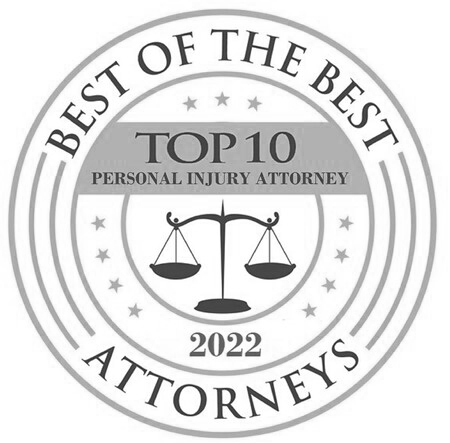 Best of The Best Attorneys
Best of The Best Attorneys Best of the Best Houston Chronicle 2021
Best of the Best Houston Chronicle 2021 Best Motorcycle Accident Lawyers in Houston 2021
Best Motorcycle Accident Lawyers in Houston 2021 American Association for Justice Member
American Association for Justice Member The National Trial Lawyers 2016 – (Top 40 under 40)
The National Trial Lawyers 2016 – (Top 40 under 40)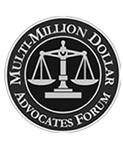 Multi-Million Dollar Advocates Forum 2016 (Top Trial Lawyer)
Multi-Million Dollar Advocates Forum 2016 (Top Trial Lawyer) Million Dollar Advocates Forum 2019 (Top Trial Lawyer)
Million Dollar Advocates Forum 2019 (Top Trial Lawyer) America’s Top 100 Attorneys 2020 (High Stake Litigators)
America’s Top 100 Attorneys 2020 (High Stake Litigators) Lawyers of Distinction 2019, 2020 (Recognizing Excellence in Personal Injury)
Lawyers of Distinction 2019, 2020 (Recognizing Excellence in Personal Injury)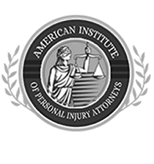 American Institute of Personal Injury Attorneys 2020 (Top 10 Best Attorneys – Client Satisfaction)
American Institute of Personal Injury Attorneys 2020 (Top 10 Best Attorneys – Client Satisfaction) American Institute of Legal Advocates 2020 (Membership)
American Institute of Legal Advocates 2020 (Membership) Association of American Trial Lawyers 2018 - Top 100 Award recognizing excellence in personal injury law
Association of American Trial Lawyers 2018 - Top 100 Award recognizing excellence in personal injury law American Institute of Legal Professionals 2020 (Lawyer of the Year)
American Institute of Legal Professionals 2020 (Lawyer of the Year) Lead Counsel Verified Personal Injury 2020
Lead Counsel Verified Personal Injury 2020 The Houston Business Journal 2021
The Houston Business Journal 2021